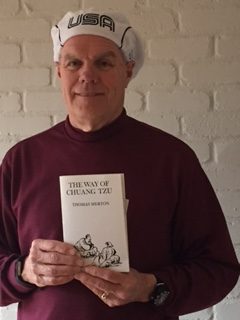 Thomas Merton in THE WAY OF CHUNG TZU discusses the classic Ju philosophy of Confucius. A philosophy “built on basic social relationships and obligations that are essential to a humane life and … develop the human potentialities of each person in his relationship to others.” Merton, THE WAY OF CHUNG TZU at 17-18 (New Directions 1965).
Thomas Merton in THE WAY OF CHUNG TZU discusses the classic Ju philosophy of Confucius. A philosophy “built on basic social relationships and obligations that are essential to a humane life and … develop the human potentialities of each person in his relationship to others.” Merton, THE WAY OF CHUNG TZU at 17-18 (New Directions 1965).
By fulfilling the commands of nature which are commands of love we develop an “inner [subconscious] potential for love, understanding, reverence and wisdom.” Id. at 18. Here we live at the highest level. (According to Merton, Confucius claims it took until he was 70 to reach this level).
When we apply Ju philosophy to the practice of law we practice law at the highest level. Merton outlines three steps to accomplish this:
Compassion. We must have a “compassionate and devoted love, charged with deep empathy and sincerity, that enables [us] to identify with the troubles and joys of others as if they were [our] own.” Id. As lawyers this means we must have a compassionate and devoted love charged with sincerity and empathy for our client and our jury. We must feel our client’s plight and have a feeling of love and acceptance for the jury panel. This requires internalizing compassion into our subconscious mind before the trial begins.
Sense of Justice. We must have a sense of justice, responsibility, duty and obligation to others and society. As lawyers this means we stand for fairness for our client. When we can get fairness through negotiation we negotiate. When we cannot get fairness through negotiation we try the case. Before trial we must internalize the reality that fairness for our client can only be accomplished through trial. This must be seeded into our subconscious mind so it is our natural state or presence.
Disinterest. We must be completely disinterested in ourself. “The mark of the ‘Noble Minded Man’ is that he does not do things simply because they are pleasing or profitable to himself, but because they flow from an unconditional moral imperative.” Id. This moral imperative is justice which, as I interpret Merton, is good in itself. “Hence, anyone who is guided by the profit motive … is not capable of [being genuine].” Id.
If I am at “the Merton level” in a jury trial good things will happen. I am before the jury with deeply seeded love in my heart. I love my client, and I go into voir dire with love and acceptance for the panel. My mindset/feeling is recognized by the panel as acceptance. Since I am in trial only because justice demands it, my words and body language demonstrate my pursuit of fairness. Being disinterested the panel recognizes my pursuit of justice as pure rather than tainted by a profit or a for me motive. The panel will respond favorably as jury members also desire fairness and they have the ability to ensure it with their verdict.
Post Footer automatically generated by Add Post Footer Plugin for wordpress.

